
Blur are an English rock band formed in London in 1988. The band consists of singer Damon Albarn, guitarist Graham Coxon, bass guitarist Alex James and drummer Dave Rowntree. Their debut album, Leisure (1991), incorporated the sounds of Madchester and shoegaze. Following a stylistic change influenced by English guitar pop groups such as the Kinks, the Beatles and XTC, Blur released Modern Life Is Rubbish (1993), Parklife (1994) and The Great Escape (1995). As a result, the band helped to popularise the Britpop genre and achieved mass popularity in the UK, aided by a chart battle with rival band Oasis in 1995 dubbed "The Battle of Britpop".

Damon Albarn is an English and Icelandic musician and composer. He is the frontman and main lyricist of the rock band Blur and the co-creator and primary musical contributor of the virtual band Gorillaz.
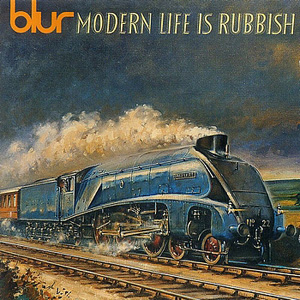
Modern Life Is Rubbish is the second studio album by English alternative rock band Blur, released in May 1993. Although their debut album Leisure (1991) had been commercially successful, Blur faced a severe media backlash soon after its release, and fell out of public favour. After the group returned from an unsuccessful tour of the United States, poorly received live performances and the rising popularity of rival band Suede further diminished Blur's status in the UK.

Graham Leslie Coxon is an English musician, singer-songwriter, multi-instrumentalist and painter who came to prominence as a founding member of the rock band Blur. As the group's lead guitarist and secondary vocalist, Coxon is featured on all of Blur's studio discography. He has also led a solo career since 1998, producing and playing all instrumentation on his solo albums. As well as being a musician, Coxon is a visual artist: he designed the cover art for all his solo albums as well as Blur's 13 (1999).

Think Tank is the seventh studio album by the English rock band Blur, released on 5 May 2003. Continuing the jam-based studio constructions of the group's previous album, 13 (1999), the album expanded on the use of sampled rhythm loops and brooding, heavy electronic sounds. There are also heavy influences from dance music, hip hop, dub, jazz, and African music, an indication of songwriter Damon Albarn's expanding musical interests.

Blur is the fifth studio album by the English rock band Blur, released on 10 February 1997 by Food Records. Blur had previously been broadly critical of American popular culture and their previous albums had become associated with the Britpop movement, particularly Parklife, which had helped them become one of Britain's leading pop acts. After their previous album, The Great Escape, the band faced media backlash and relationships between the members became strained.

13 is the sixth studio album by English alternative rock band Blur, released on 15 March 1999. Continuing the stylistic shift away from the Britpop sound of the band's early career, 13 explores experimental, psychedelic and electronic music.
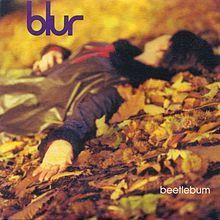
"Beetlebum" is a song by English alternative rock band Blur. It was released on 16 January 1997 as the lead single from the band's eponymous fifth album, Blur (1997). Written about Blur frontman Damon Albarn's experiences with heroin, the song features Beatles-influenced music and a mood that Albarn described as "sleepy" and "sexy". Despite fears of the song's uncommercial nature, the single debuted at number one on the UK Singles Chart, becoming Blur's second track to top the chart. It has since appeared on several Blur compilations.
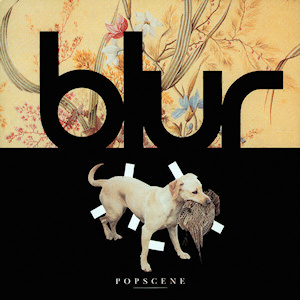
"Popscene" is a song by English alternative rock band Blur, released as a non-album single on 30 March 1992. Despite its relatively low chart placing, it has since become critically praised and regarded as one of the pioneering songs of the Britpop genre.

"Song 2" is a song by English rock band Blur. The song is the second song on their eponymous fifth studio album. Released physically on 7 April 1997, "Song 2" peaked at number two on the UK Singles Chart, number four on the Australian ARIA Singles Chart, and number six on the US Billboard Modern Rock Tracks chart.
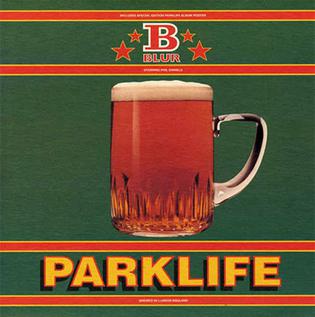
"Parklife" is a song by the English rock band Blur, released in August 1994 by Food and Parlophone as the third single from the band's third studio album, Parklife (1994). The song contains spoken-word verses by the actor Phil Daniels, who also appears in the music video, which was directed by Pedro Romhanyi.
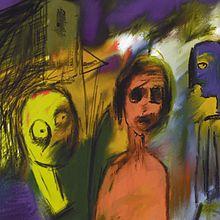
"Coffee & TV" is a song by British rock band Blur. It was written by the band's guitarist, Graham Coxon, who also sang lead vocals rather than frontman Damon Albarn. The song appears on Blur's sixth studio album, 13 (1999), and was the second single released from the album on 28 June 1999. The lyrics describe Coxon's struggle with alcoholism and the song's video, featuring a sentient milk carton searching for Coxon, won several awards. Commercially, "Coffee & TV" reached No. 11 in the United Kingdom and No. 26 in Ireland. It was a major hit in Iceland, where it peaked at No. 2 in September 1999.

"Tender" is a song by English rock band Blur from their sixth studio album, 13 (1999). Written by the four band members about Blur frontman Damon Albarn's breakup with musician turned painter Justine Frischmann, the song was released in Japan on 17 February 1999 and in the United Kingdom on 22 February as the album's lead single. "Tender" became Blur's 11th top-10 hit on the UK Singles Chart, debuting and peaking at number two the week after its release. It also reached the top 20 in Greece, Iceland, Ireland, Italy, New Zealand, Norway, and Spain.

"For Tomorrow" is a song by English alternative rock band Blur. It is the lead track to their second album, Modern Life Is Rubbish. Released 19 April 1993 as the first single from the album, "For Tomorrow" charted at number 28 in the UK Singles Chart. The Visit to Primrose Hill Extended version of "For Tomorrow" was included in the band's compilation albums, Blur: The Best of, and Midlife: A Beginner's Guide to Blur.
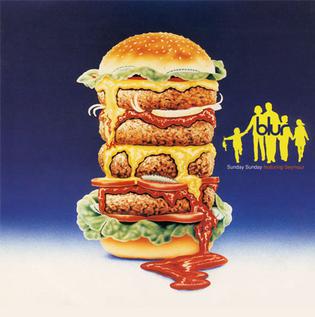
"Sunday Sunday" is a song by English alternative rock band Blur, included on their second album, Modern Life Is Rubbish (1993). It was released 4 October 1993 as the final single from that album, and charted at number 26 on the UK Singles Chart. This is the highest-charting single from the album ; the record company thought the original album contained no singles, and had the band write the other two singles specifically for single release. The band's original name, 'Seymour', is credited as guest performer on the CD1 single, due to the B-sides being recordings from that era.

"To the End" is a song by English alternative rock band Blur. It appears on their third studio album, Parklife (1994), and was released as a single in May 1994 by Food Records. The song describes a couple unsuccessfully trying to overcome a bad patch in a relationship, and features full orchestral accompaniment with a choric refrain in French by Lætitia Sadier from Stereolab. The song was produced by Stephen Hague, unlike the rest of the Parklife album, which was produced by Stephen Street. Blur have produced several different recordings of the song.
"This Is a Low" is a song by English rock band Blur for their third studio album, Parklife. The song was released as a promotional single in 1995.
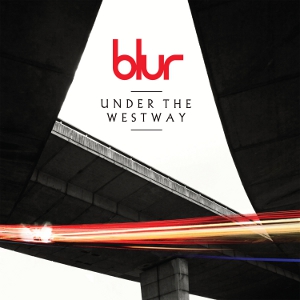
"Under the Westway" is a single by English band Blur, released in July 2012. After being played by Damon Albarn and Graham Coxon at Brixton Academy as part of a charity performance for War Child, speculation rose as to "Under the Westway"'s release. On 25 June 2012, it was announced on Blur's Twitter account that the track would be performed live by the band via a live stream and released for download shortly after, with Albarn stating "I wrote these songs for [the upcoming Hyde Park show] and I’m really excited about getting out there and playing them for people." The single was released as a download-only release on 2 July 2012, accompanied by "The Puritan", and received a physical release in August. The song also made its radio debut on Steve Lamacq's BBC Radio 6 Music show on the same day. It was the band's first single since 2010's "Fool's Day". An early mix of the song is included on the Blur 21 box set.

Leisure is the debut studio album by the English rock band Blur, released by the Food record label on 27 August 1991.
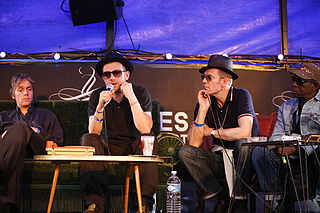
The Good, the Bad & the Queen were an English art rock supergroup composed of singer Damon Albarn of Blur and Gorillaz, bassist Paul Simonon of the Clash, guitarist Simon Tong of the Verve, and Fela Kuti drummer Tony Allen. They released their self-titled debut album in 2007. Their second album, Merrie Land, coproduced with Tony Visconti, was released in 2018. They disbanded in 2019, and Allen died in 2020.


















